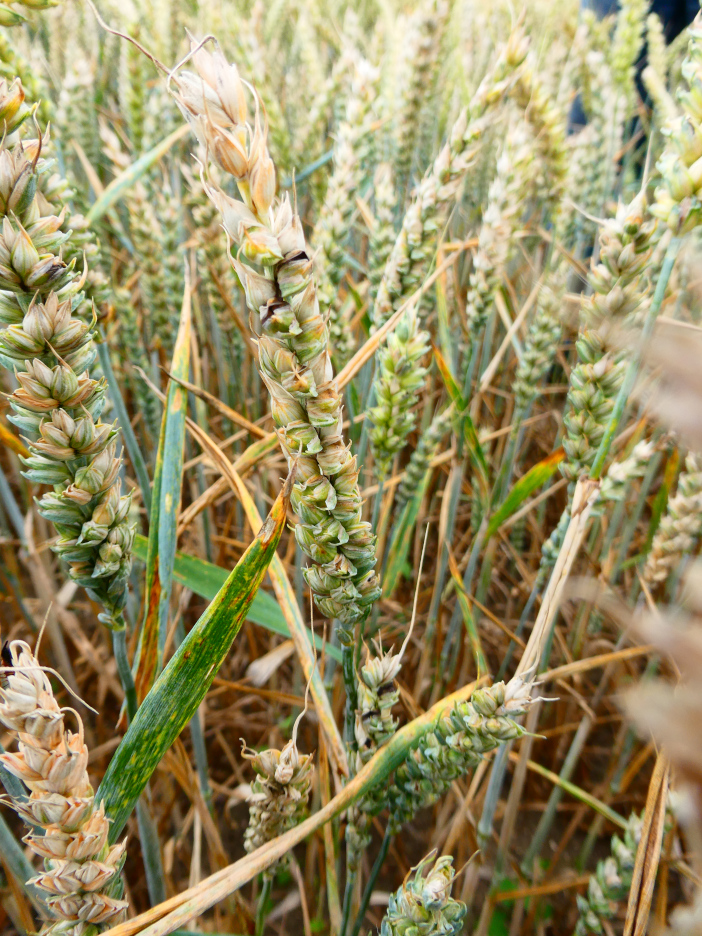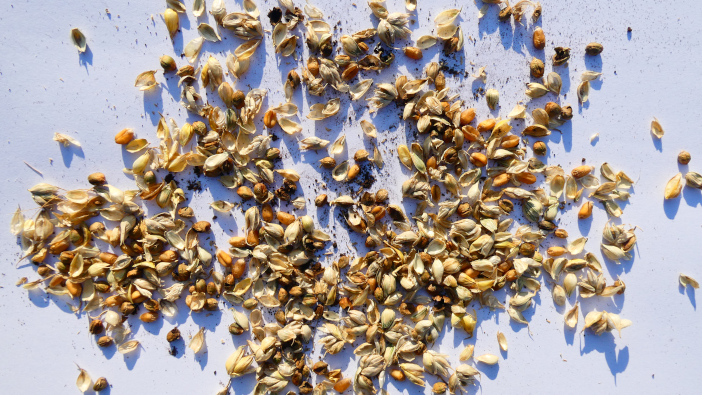A seed disease resurgence trial by Bayer has recorded exceptional levels of bunt in untreated farm-saved seed plots in year two of the five-year programme. Experts are now cautioning against growing untreated seed crops without first testing to determine disease presence.
Seed diseases such as bunt (Tilletia tritici) or loose smut (Ustilago tritici or U. nuda) have rarely been seen over the past decade as seed treatments have been effective. However, there is a small but increasing trend against the use of seed treatments in farm-saved and certified seed, to reduce costs and improve soil biology.
Kerry Maguire, Bayer’s agronomic solutions manager for arable diseases warns that unless growers know the disease status of their seed crop, they are taking a gamble by not using a seed treatment, “Previously well-controlled seed-borne diseases have the potential to emerge unexpectedly and at high levels, causing significant yield loss.”
The trials are been held at Bayer’s Shelford site, Cambridgeshire, and at Stockbridge Technology Centre in Yorkshire. Untreated KWS Basset wheat seed and Cassata barley seed were used for the trials, saved two years ago and split into treated and untreated trial plots. Treated wheat received applications of Redigo Pro (prothioconazole and tebuconazole), while Raxil Star (prothioconazole, tebuconazole and fluopyram) was used on the barley.
Both treated and untreated plots received maintenance fungicide treatments as required.
“The results from year two in the untreated wheat plots at Shelford have been quite extraordinary,” said Dr Maguire. “Bunt infection in the untreated plots ranged from 6.3% to 28% infection, with an average of 15% of ears infected across the trial. In the barley plots, there is a small amount of loose smut, but no net blotch or leaf stripe have been seen yet.”

At present, none of the trails in Stockbridge are showing any visible disease.
Dave Holah, Bayer’s country regulatory manager for UK and Ireland explained that one of the reasons behind the trial is to look at what might happen if seed treatments are no longer available. He said: “With a regulatory environment that looks set to continue the reduction in crop protection products, we could see a future where traditional chemical seed treatments are unavailable. While this scenario may be many years off, we needed to look at what difficulties growers may face without these treatments when growing certified seed crops, and when saving seed for their own use.
“We were not expecting to see results in year two, so the Shelford wheat trial is a surprise. We hope that we will be able to clean sufficient seed from the untreated plots to be able to drill again.”
One of the challenges is that many seed-bourne diseases such as loose smut exist in the seed embryo and cannot be detected without lab testing, nor removed by surface cleaning. Bunt, however, occurs on the seed surface.
“We advise growers to regularly inspect fields destined for farm-saved seed before harvest, and test seed to help inform any treatment decisions,” concluded Dr Maguire.


